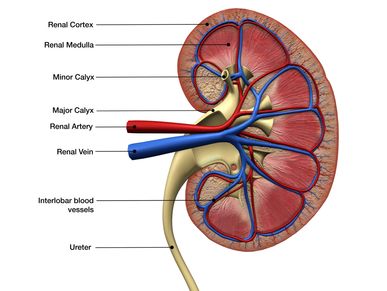Your Health, Our Priority
Kidney Disease
Cardio Renal Syndrome (CRS)
Kidney Disease
Chronic kidney disease, also called chronic kidney failure, describes the gradual loss of kidney function. When chronic kidney disease reaches an advanced stage, dangerous levels of fluid, electrolytes and wastes can build up in your body. In the early stages of chronic kidney disease, you may have few signs or symptoms. Treatment for chronic kidney disease focuses on slowing the progression of the kidney damage, usually by controlling the underlying cause.
Hypertension
Cardio Renal Syndrome (CRS)
Kidney Disease
The kidneys help filter wastes and extra fluids from blood, and they use a lot of blood vessels to do so. This is why high blood pressure is the second leading cause of kidney failure. Over time, uncontrolled high blood pressure can cause arteries around the kidneys to narrow, weaken or harden. We will work with you to come up with the best treatment plan to help bring your BP back into a normal range.
Cardio Renal Syndrome (CRS)
Cardio Renal Syndrome (CRS)
Cardiorenal Syndrome (CRS) refers to a spectrum of disorders in which acute or chronic dysfunction of the heart or kidneys leads to acute or chronic dysfunction of the other organ. The condition is classified into five subtypes based on the primary organ dysfunction and whether the disease process is acute or chronic.
Dialysis
Kidney Transplant care

Kidney dialysis is the most common treatment for patients with kidney failure. Dialysis is a procedure to remove waste products and excess fluid from the blood when the kidneys stop working properly. ... Normally, the kidneys filter the blood, removing harmful waste products and excess fluid and turning these into urine to be passed out of the body. Today, someone can be on dialysis for many years, to lead long, active, and fulfilling lives.
Hospital Care
Kidney Transplant care
Kidney Transplant care

Critical Care Management includes correction of fluid and electrolyte levels, avoidance of nephrotoxins, Acute kidney failure, and kidney replacement therapy, when appropriate. Acute kidney failure requires immediate critical care treatment. The good news is that acute kidney failure can often be reversed. The kidneys usually start working again within several weeks to months after the underlying cause has been treated. Dialysis is needed until then.
Kidney Transplant care
Kidney Transplant care
Kidney Transplant care

A kidney transplant is a surgical procedure to place a healthy kidney from a living or deceased donor into a person whose kidneys no longer function properly. Kidneys are two bean-shaped organs located on each side of the spine just below the rib cage. Each is about the size of a fist. Their main function is to filter and remove waste, minerals and fluid from the blood by producing urine. When your kidneys lose this filtering ability, harmful levels of fluid and waste accumulate in your body.
Copyright © 2025 Kidney Disease & Transplant Solutions - All Rights Reserved.
This website uses cookies.
We use cookies to analyze website traffic and optimize your website experience. By accepting our use of cookies, your data will be aggregated with all other user data.



